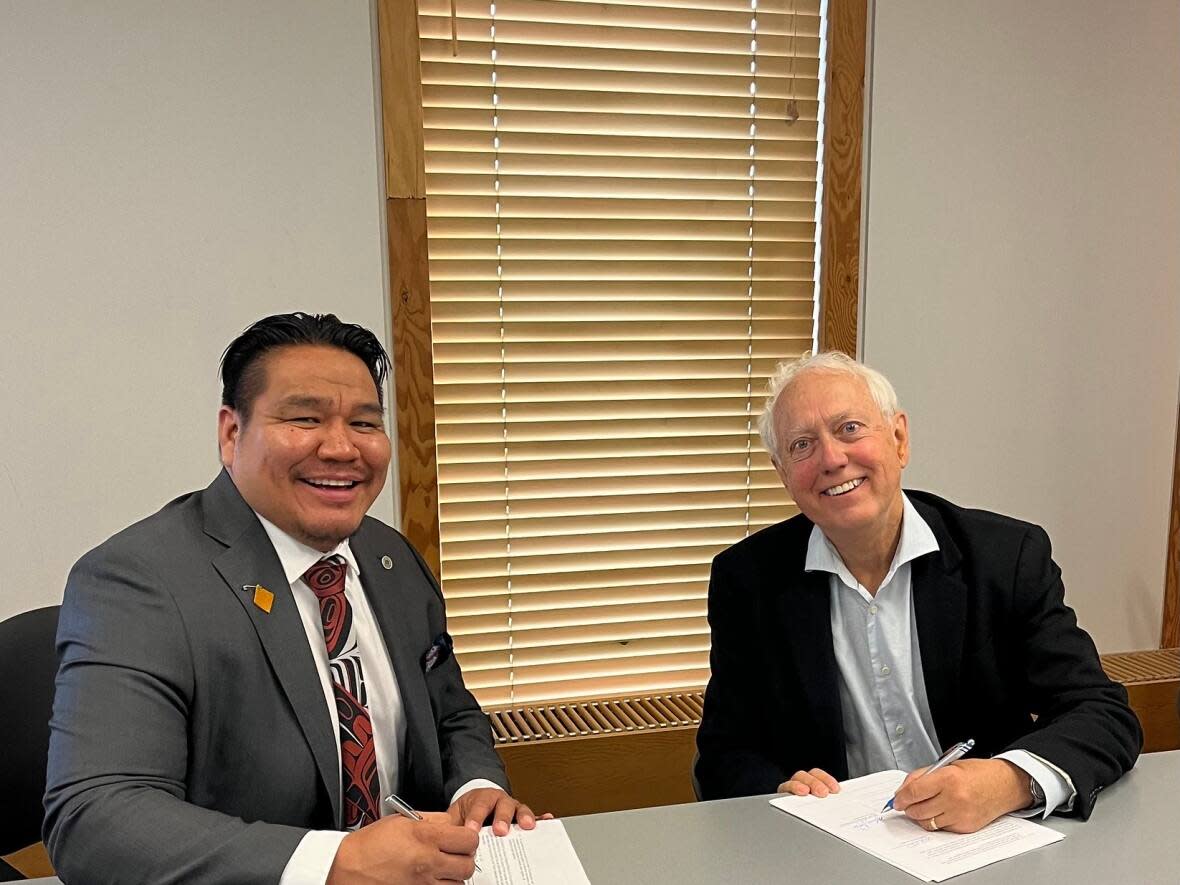B.C. returns 200 square kilometres of traditional territory to Lake Babine Nation

The Lake Babine Nation, located about 220 kilometres west of Prince George, and the province of British Columbia have signed a land transfer agreement on Friday, marking the official return of 20,000 hectares — 200 square kilometres — of traditional territory to the First Nation.
The land was part of a commitment laid out in a foundational agreement signed in 2020 by Lake Babine leaders, the province, and the federal government, and includes waterfront property and prime forestry land.
The land was handed over in fee simple, meaning the Nation — made of five communities, with over 2,500 members — is not restricted beyond B.C. laws, bylaws or building codes in how they choose to develop it.
"What this means to our people is opportunity," said Lake Babine Chief Murphy Abraham in an interview.
"Opportunity to continue to negotiate more land back to Lake Babine Nation. And an opportunity to continue to get into the forestry industry."
Abraham says about $150 million worth of tenure that can be leased for tourism and recreation is included in the transfer. He says Lake Babine is looking to use the investment to fund new community infrastructure and develop other economic opportunities.
"As soon as these tenures are sold, we're looking at building within these lands and bringing back the community we once had," he said.

Murray Rankin, B.C.'s minister of Indigenous relations, called the land transfer a significant step toward the implementation of Lake Babine Nation's Aboriginal title.
"Through the foundation agreement we are moving into a new relationship that fosters transformative change toward self-government, makes a real difference on the ground for Lake Babine Nation members and brings stability and prosperity to everyone in the region," Rankin said in a statement.
Chief Abraham says having the province acknowledge his people's title and rights on their traditional territory is "a big encouragement to our nation."
He's pleased with the progress being made from ongoing talks with the province, though he says discussions at the federal level have been moving more slowly.
"B.C. especially, they've come to the plate," said Abraham. "They've made commitments to our negotiation tables, to our economic and forestry tables."
He says Lake Babine Nation's forestry team has already started planning and strategizing different business opportunities, partnerships and collaborations making use of the land.
"We know that these lands still belong to us because we continue to come back," he said.
"We continue to hunt and fish and trap."
Abraham sees the new agreement as a "good start" and hopes to see more traditional territory returned to his communities more quickly in the coming years.


